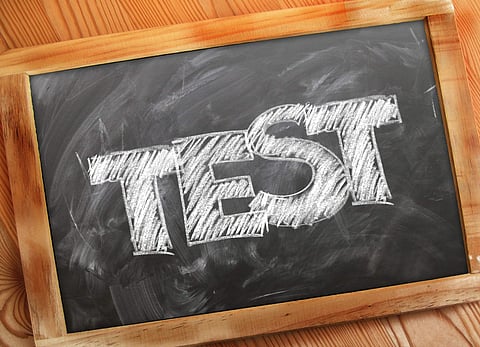

NEW DELHI: To streamline the process of appointment of judges at the district court level across the country, more timely and efficiently so that nearly 5000 vacancies can be filled up, the government is preparing a draft on the proposed All India Judicial Services (AIJS) examination.
Though AIJS was mooted several times but several high courts have opposed the idea of AIJS as they don’t want the administrative control over subordinate judiciary to go away from them. The Law Commission of India proposed the AIJS in 1958 after which it was added to Article 312 of the Constitution through the 42nd amendment in 1976.
But 13 states and 18 high courts either opposed AIJS or sought changes.
ALSO READ: Skewed gender ration in judiciary present world over, not just India
As per the draft, government has finalised that UPSC will be the executing agency and High Courts and the Supreme Court will be the appointing authorities. The government is likely to bring the legislation in the upcoming monsoon session.
It has also been finalised that a lawyer with seven-year practice or someone who is teaching at a recognised law college or university for nearly the same time would qualify to take the exam and the age limit is likely to be fixed between 28 and 35 years.
There will also be age limit relaxation for members of Other Backward Classes, Scheduled Castes and Scheduled Tribes. AIJS entrance exam will be held at the zonal levels. Only the HCs of Sikkim, Tripura have concurred with the proposal approved by the committee of secretaries for formation of an all-India service for lower judiciary.
The Allahabad, Chhattisgarh, Himachal Pradesh, Kerala, Manipur, Meghalaya, Orissa and Uttarakhand high courts have suggested changes in age at induction level, qualifications, training and quota of vacancies to filled through the proposed service. The high courts of Jharkhand and Rajasthan have informed that the matter regarding creation of the AIJS is pending consideration, while no response has been received from the high courts of Calcutta, Jammu and Kashmir and Gauhati.
For and Against the Proposal
High courts of Andhra Pradesh, Bombay, Delhi Gujarat, Karnataka, MP, Patna and, Punjab and Haryana have opposed the idea. Only the HCs of Sikkim and Tripura have concurred with the proposal.